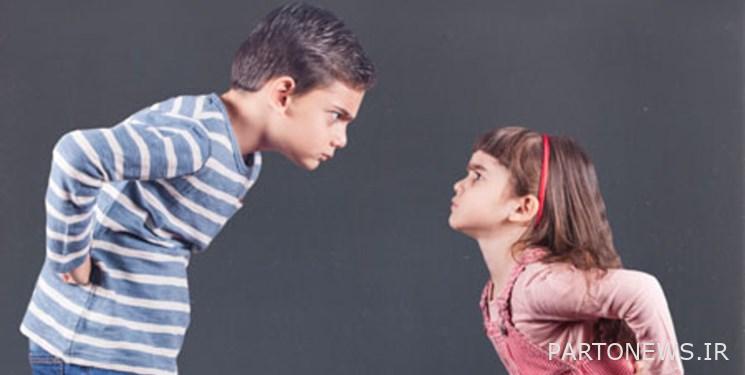Can your child defend himself / herself? / What is the sign of beating children?

Family group: Many parents worry that their children will not be able to defend themselves, for example, they will be beaten by other children in public, or that they will not be able to keep their personal belongings and defend their rights against others, or even that they will be isolated and They are shy.
Parents need to know that the behaviors of children at different ages are different. . Although violence in old age needs to be investigated, it is part of the growth process at a young age. So all of these behaviors change over time.
* What group of children can not defend themselves?
Children who are highly dependent on their mothers or who play with children older than their own age, such as over two years old, are generally challenged and unable to defend themselves because they feel powerless against them. Some one-child children also have poor interactions in the future due to loneliness and lack of playmates and can not defend themselves. Also, the sisters of the brothers, who have a lot of jealousy and rivalry, one of them is weak and can not defend himself. Apartment life also generally encourages children to do this.
* Should parents intervene?
Usually, children between the ages of one and a half to two years old tease, bite or beat each other when they play, because they are very angry with their peers and have not yet learned to be equal. Beating is not normal from the age of three and should be investigated.
It is not the young children’s duty to defend themselves, they need an adult to be with them so that if a child tries to hit or bully another, the adult can control him or her without shouting or fighting.
Some examples of parental misinformation to children are that when children are involved, they use phrases such as “Let go, come to me,” or “Do not play with him,” or “If he hits, hit him.” In the first two examples, children learn not to defend themselves, and in the third example, they are taught that if someone does something wrong, you do the same, and this causes anger in the children.
** So what do we do?
Teach your child to raise his hand when it comes to physical contact and, if necessary, hold the other person’s hand and say, “Do not hit,” “I will not let you hit me,” or “If you hit, I will not play with you anymore.”
So the advice “if you hit, hit” will cause a lot of harm to the child. It questions your child’s teachings and teaches that if someone does something wrong, I can repeat it. A child who is beaten is full of bad feelings about himself and others. In fact, a child who is beaten suffers more than a child who eats and feels more negative emotions, as well as putting him at risk of sometimes irreparable physical harm, and infuriating the child with anger and resentment. Learns.
By teaching your child this behavior that “do not hit” or “if you hit, I will not play with you anymore” you teach him that he can set boundaries and defend himself in relation to others, and if the other party continues his behavior Dad, your child should leave the environment and just say, “Do something and I will not play with the person who plays.”

Teach your child that leaving the workplace is not a bad sign or a sign of cowardice, but shows that he knows the difference between good and bad and right and wrong.
With this training, you tell him that there will be people in his life who suffer from behavioral disorders, and the wisest reaction is not to get involved with these people.
Another point is for parents to know not to defend their children’s rights. Many parents do not allow their children to defend their rights at all. In this way, children will learn how to defend themselves. So if children are playing with their peers and there is a disagreement, let them solve the problem themselves and you will not take action until the work is dangerous.
Give children the right at home. For example, if a guest comes home and plays with your child’s toys and your child does not allow it, do not destroy him in front of the crowd and let them get along on their own. Take your child to different places in the community, let them be away from you sometimes and play with the children. In the park, let them play with other children, even if they have fights, let them solve the problem themselves.
Finally, encourage him, even if what he did was small, but tell him exactly that I was very happy with his behavior and what you did, or praise his skills in general. Sometimes use plays and stories to teach and fulfill the rights of the child and use the story, and finally help your child to specialize in a sport or art and gain high skills, which increases self-confidence in He becomes and can defend his right.
End of message /
You can edit this post
Suggest this for the front page

